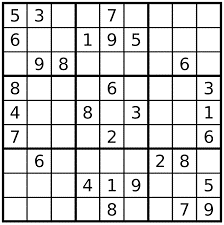As we age, it’s natural to experience a decrease in both physical attributes and cognitive abilities. However, recent research suggests strongly that there are great benefits in engaging in neurological training. Doing regular brain challenging activities can help maintain quality of life through keeping our brains sharp!
Why?
Our brains are like super flexible muscles, capable of adapting and growing even as we age. Neurological training taps into this amazing ability, kind of like giving your brain a workout at the gym. It helps create new pathways, strengthens existing ones, and keeps everything running smoothly. It has also been shown in research that neurological training may even help prevent neurological diseases such as Alzheimer’s or Parkinson’s disease. Brain training, can also result in more dopamine and serotonin releases, which are the feel-good chemicals in the brain, this can help improve mood and motivation in your day to day life.
How?

Neurological training can be fun, and not time consuming, which makes it a great, easy option to do daily. It can be in the form of games or activities that make you really think, such as trivia, sudoku, crossword or memory games. These are often easy to implement as they are a lot of fun, as well as great for the memory and problem-solving skills. Another way to train the brain is to keep moving, this might not look like the traditional push up or squat in the gym, but coordination movement tasks, balance challenges, and fine motor skill activities. These can all assist in maintaining balance to reduce the risk of falls, improving the body’s ability to coordinate movement and control over gross and fine motor skills.
Lets focus on how specific types of exercises can not only improve muscle and bone strength, but cognition as well.
Aerobic Exercise: Activities like walking, jogging, swimming, or cycling increase blood flow to the brain, delivering oxygen and nutrients that support cognitive function. Aim for at least 150 minutes of moderate aerobic exercise per week to reap the cognitive benefits.
Strength Training: Lifting weights or using resistance bands not only strengthens your muscles but also promotes the growth of new brain cells. Incorporate strength training exercises into your routine two to three times per week to enhance cognition is recommended.
Balance and Coordination Exercises: Tai chi, yoga, and dance are excellent forms of exercise that challenge balance and coordination while also stimulating the brain. These activities improve neural connections and enhance cognitive function.

Mind-Body Exercises: Practices like yoga and Pilates not only improve flexibility and strength but also focus on mindfulness and relaxation techniques. These exercises reduce stress levels, which can positively impact cognitive health.
Interval Training: Alternating between short bursts of high-intensity exercise and periods of rest or lower intensity can improve cognitive function more effectively than steady-state cardio. Try incorporating intervals into your aerobic workouts for an extra brain boost.
Neurological training offers a holistic approach to maintaining brain health and cognitive function in older adults. By challenging your mind with brain-boosting activities, staying physically active, and taking care of your overall well-being, you can unlock the secret to a vibrant and fulfilling life at any age.




